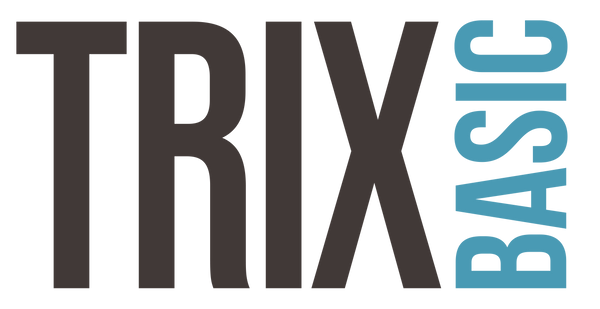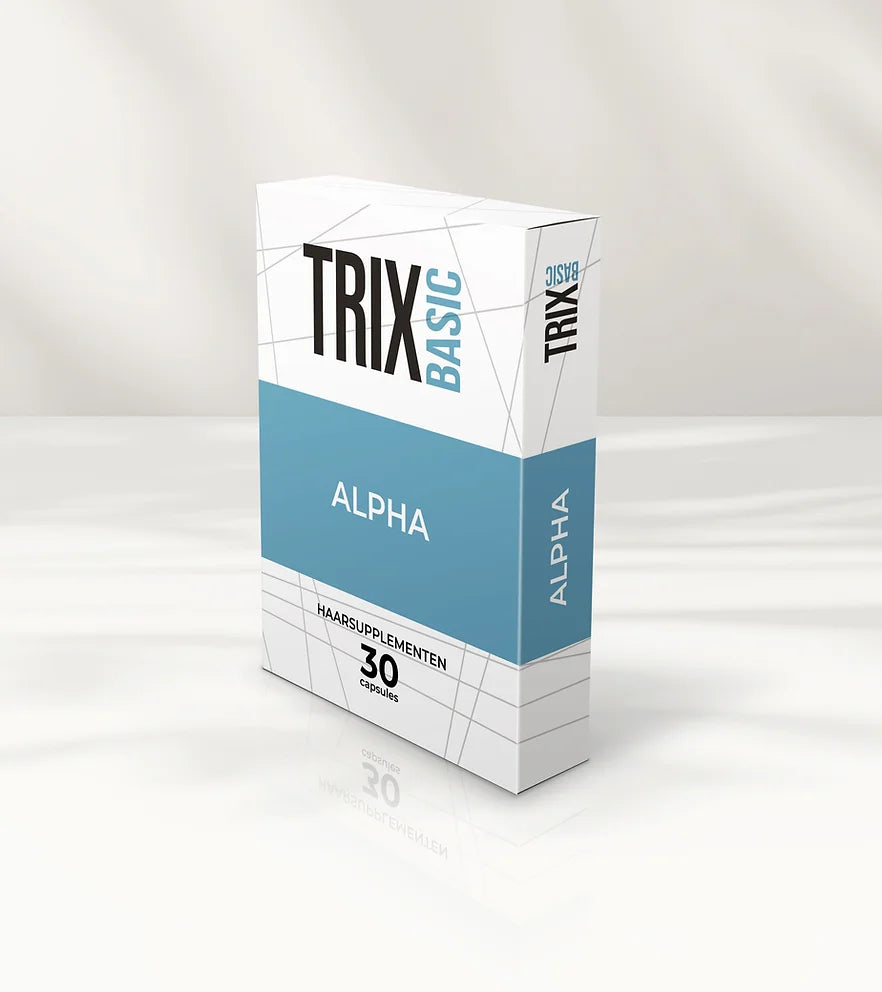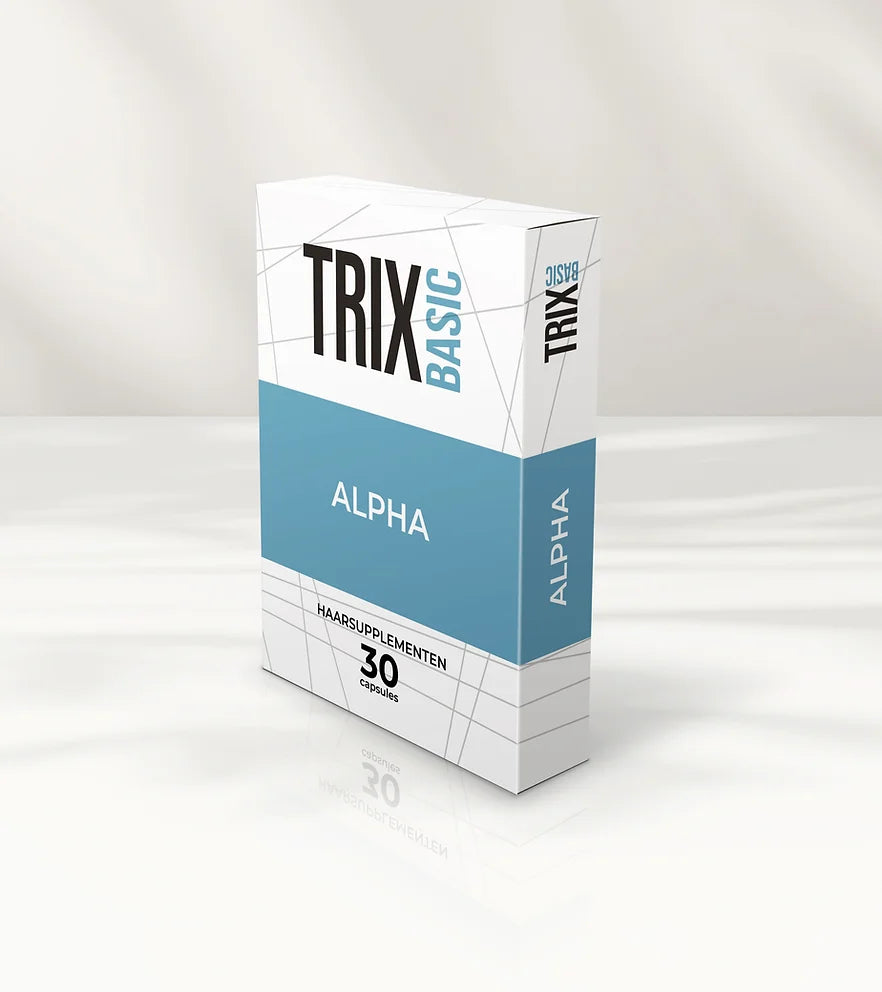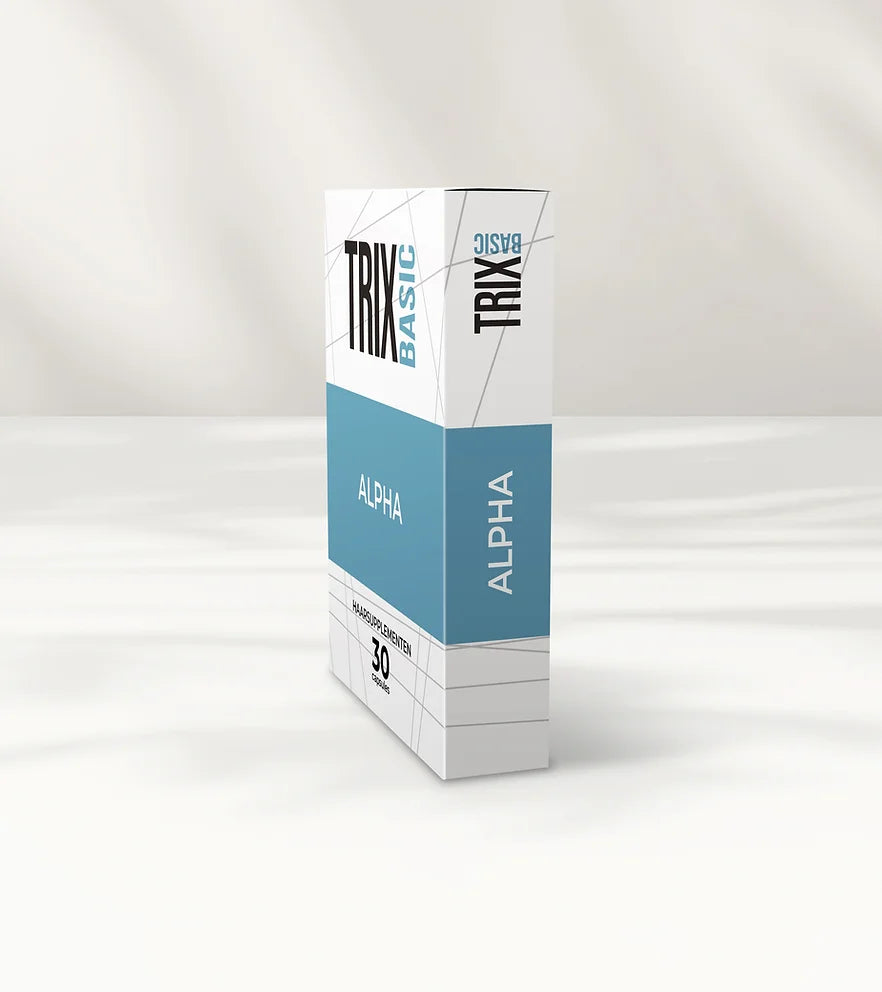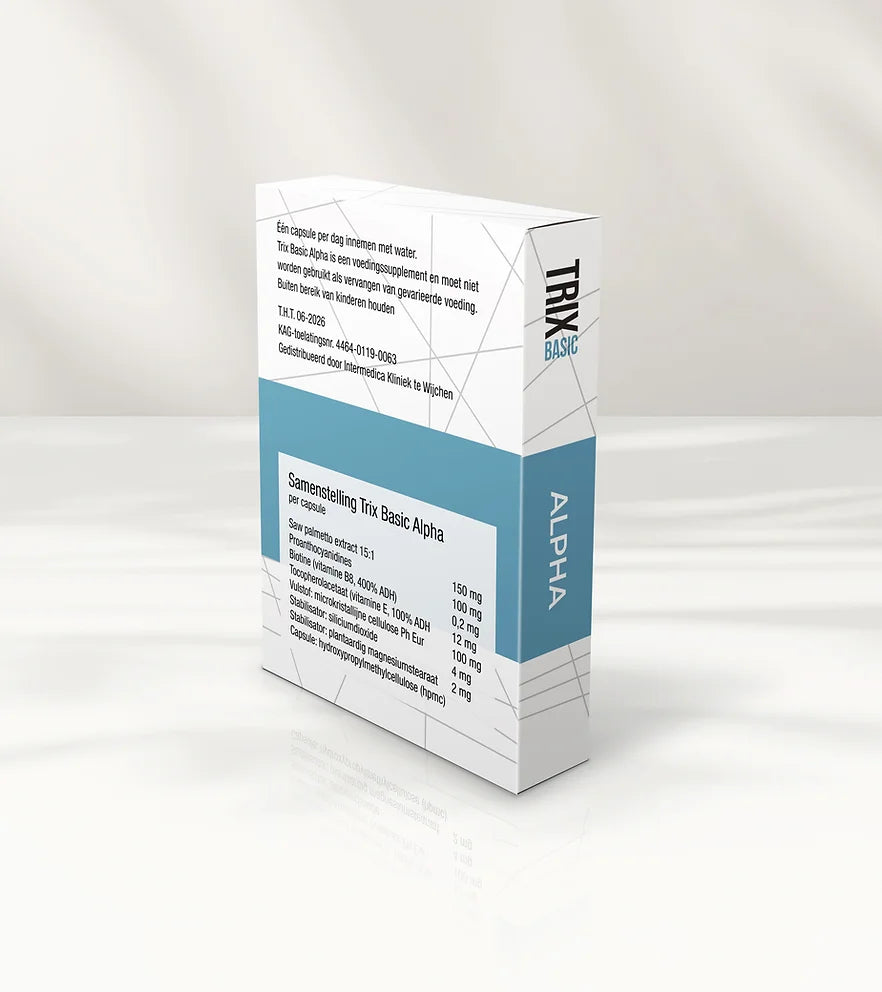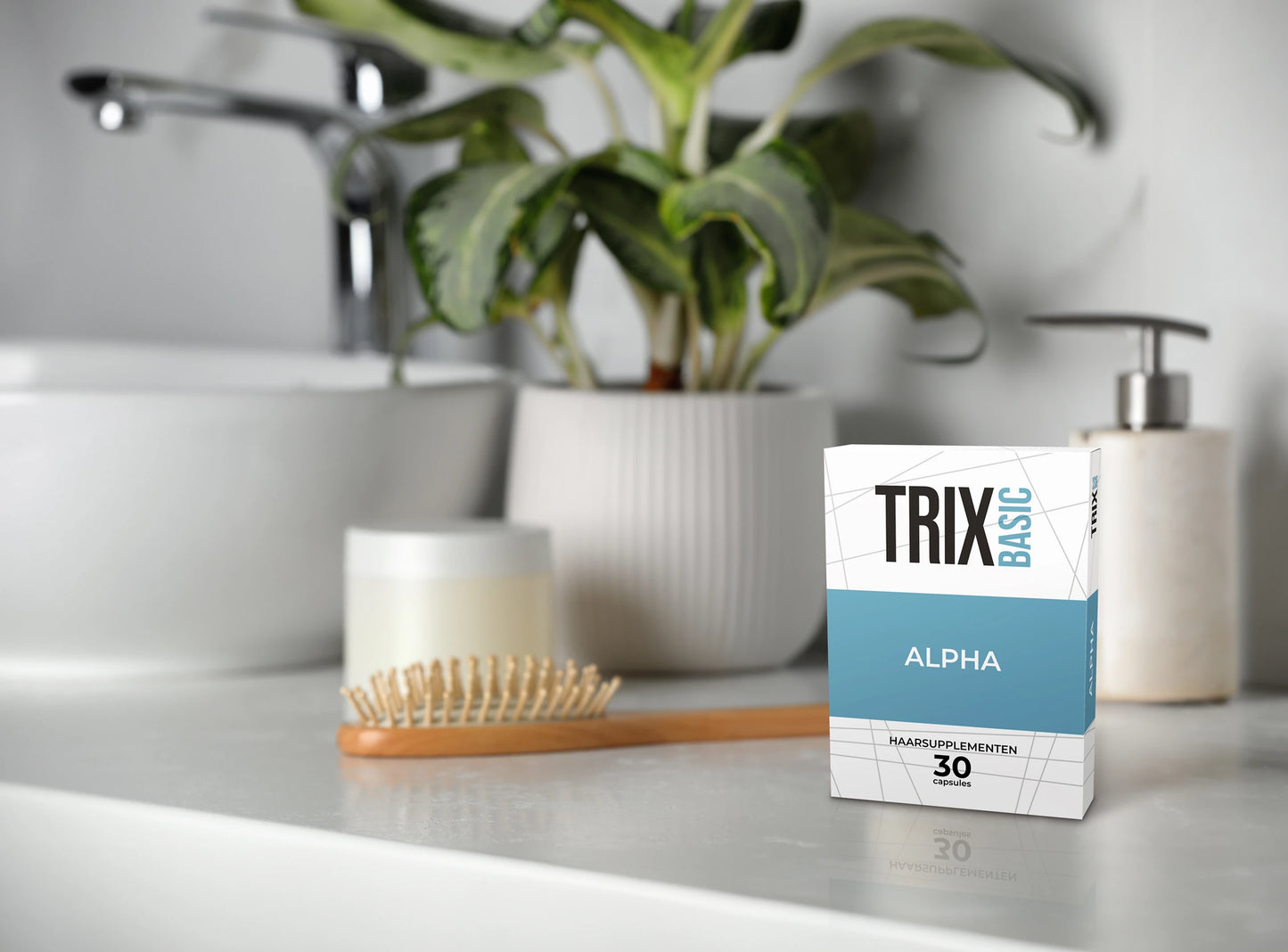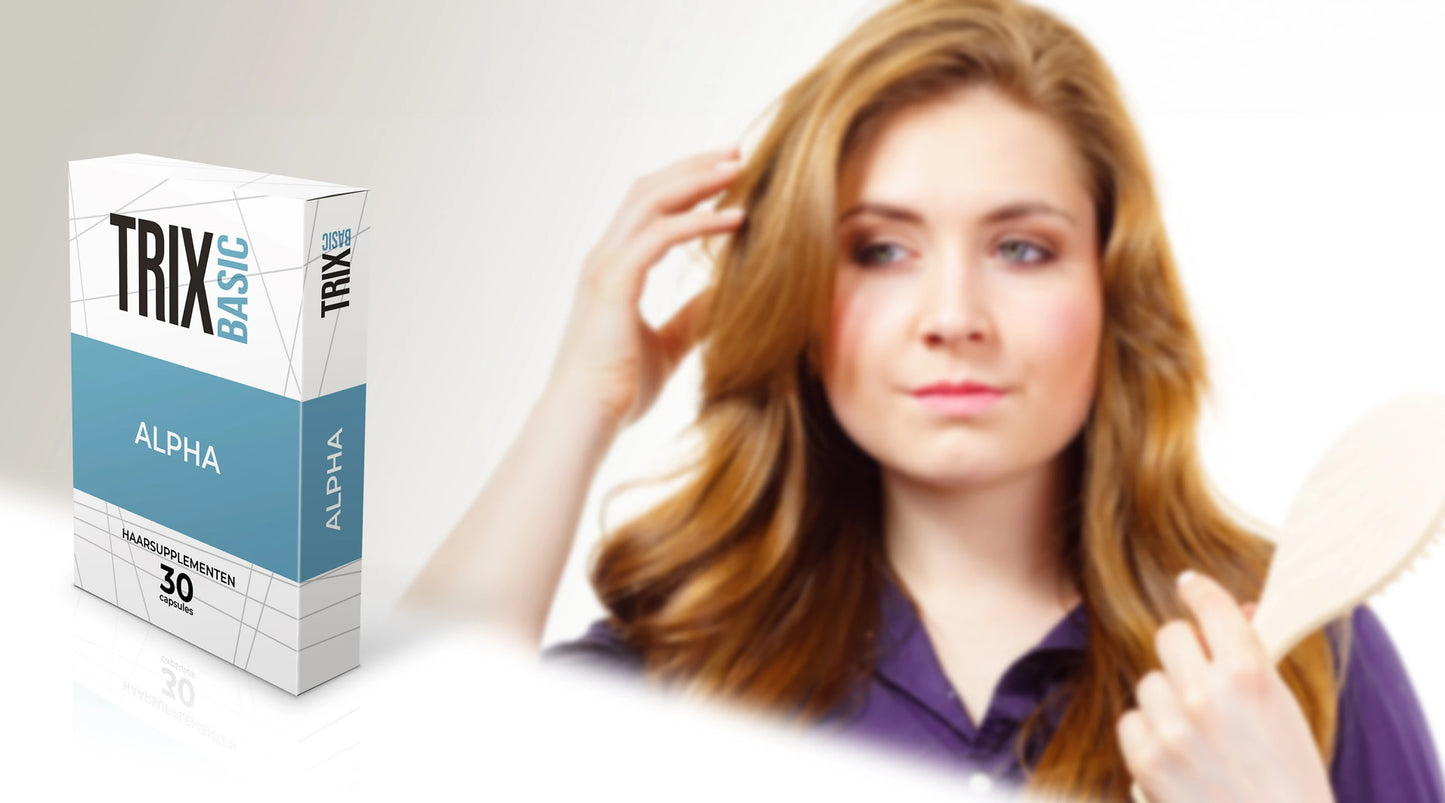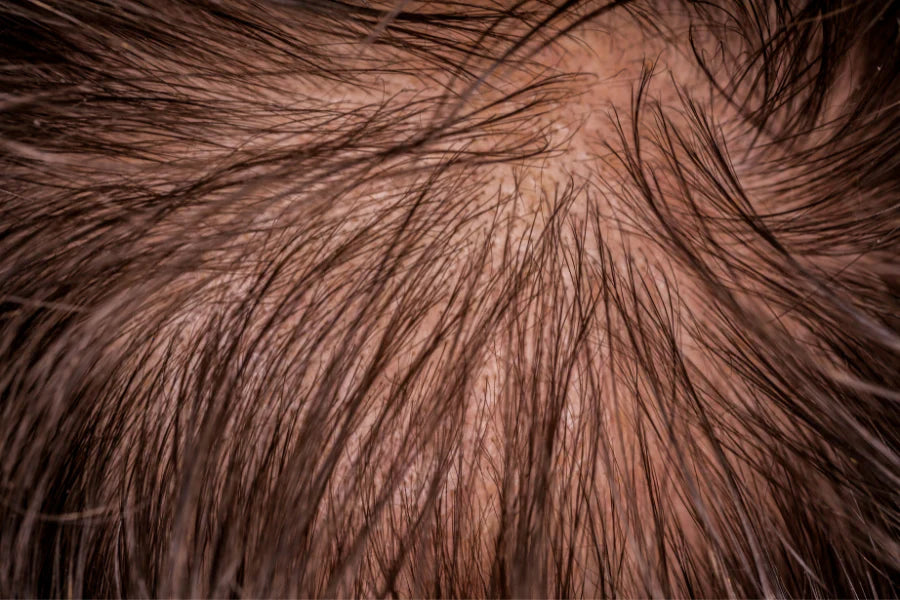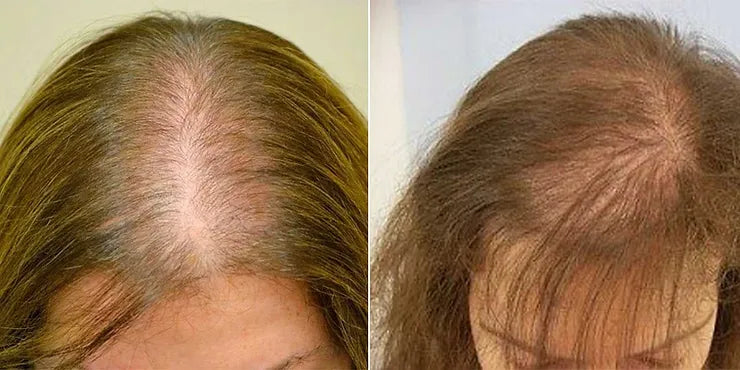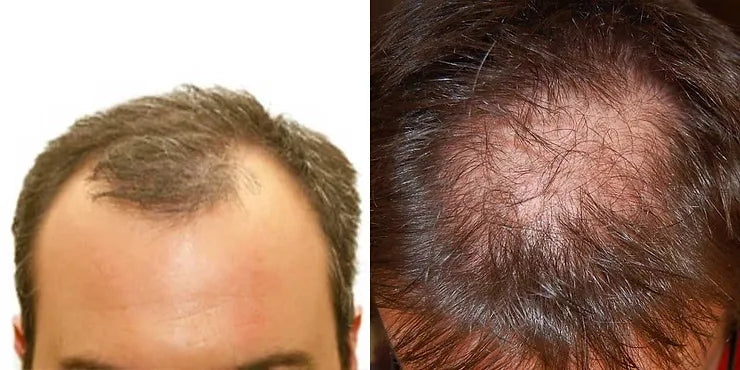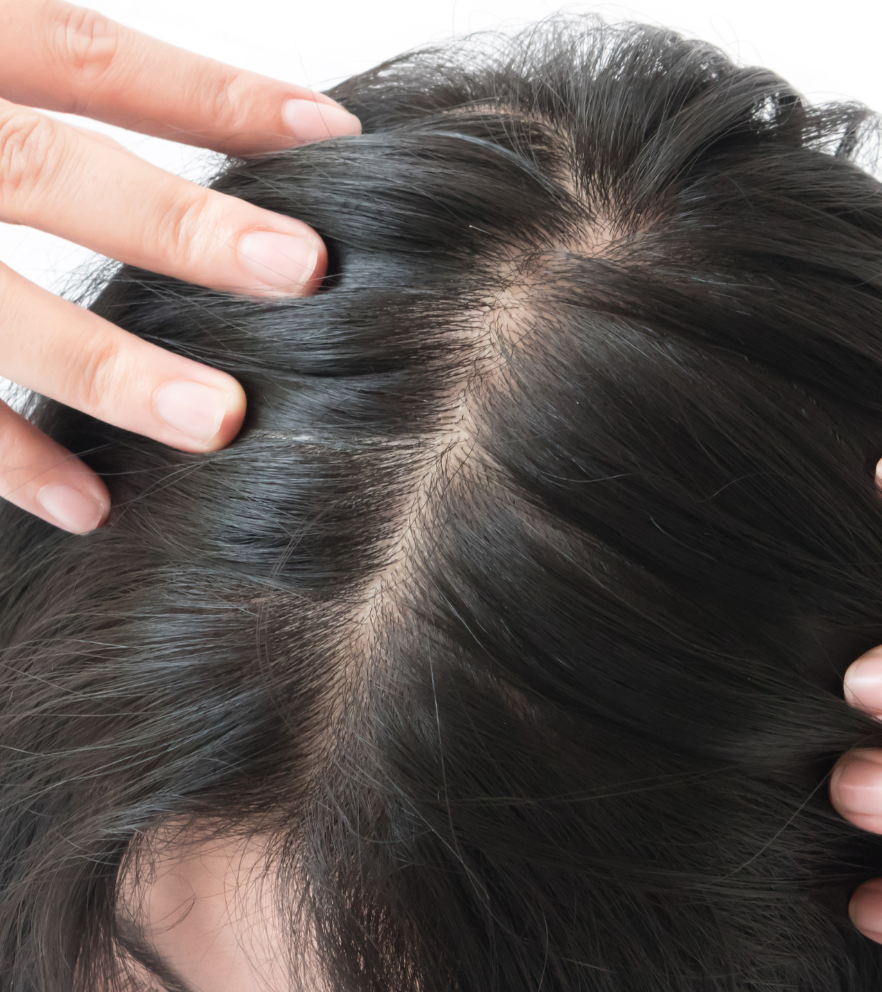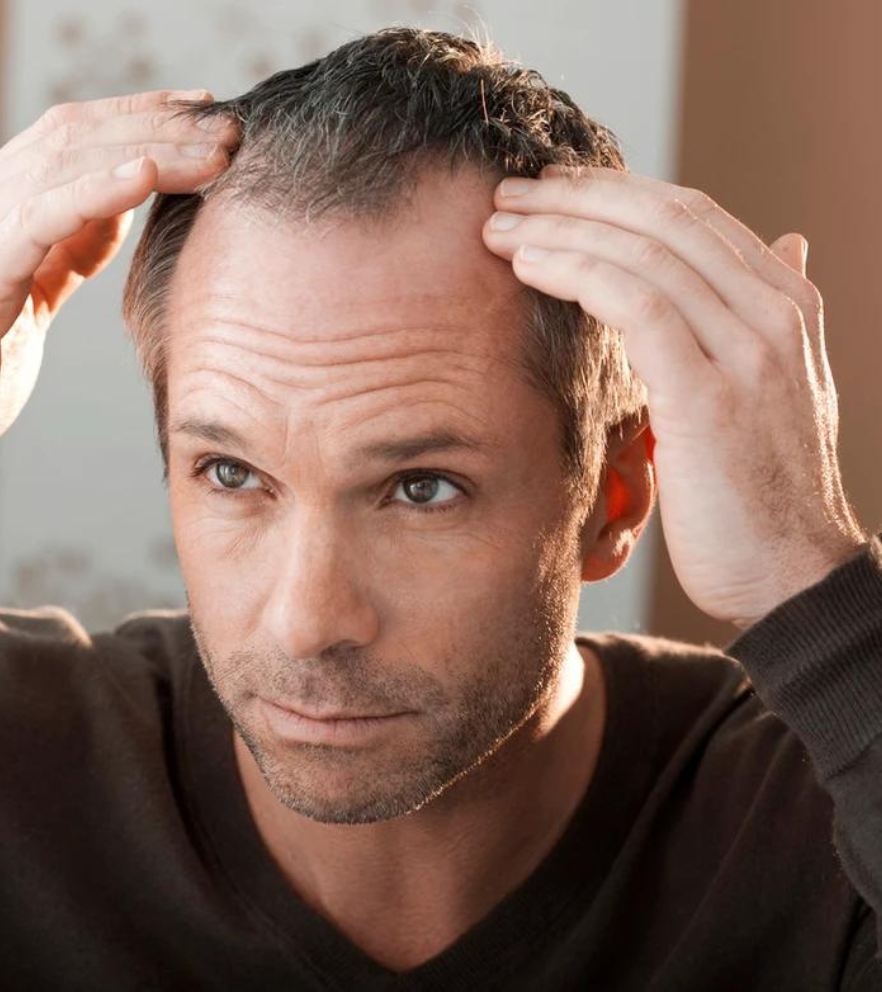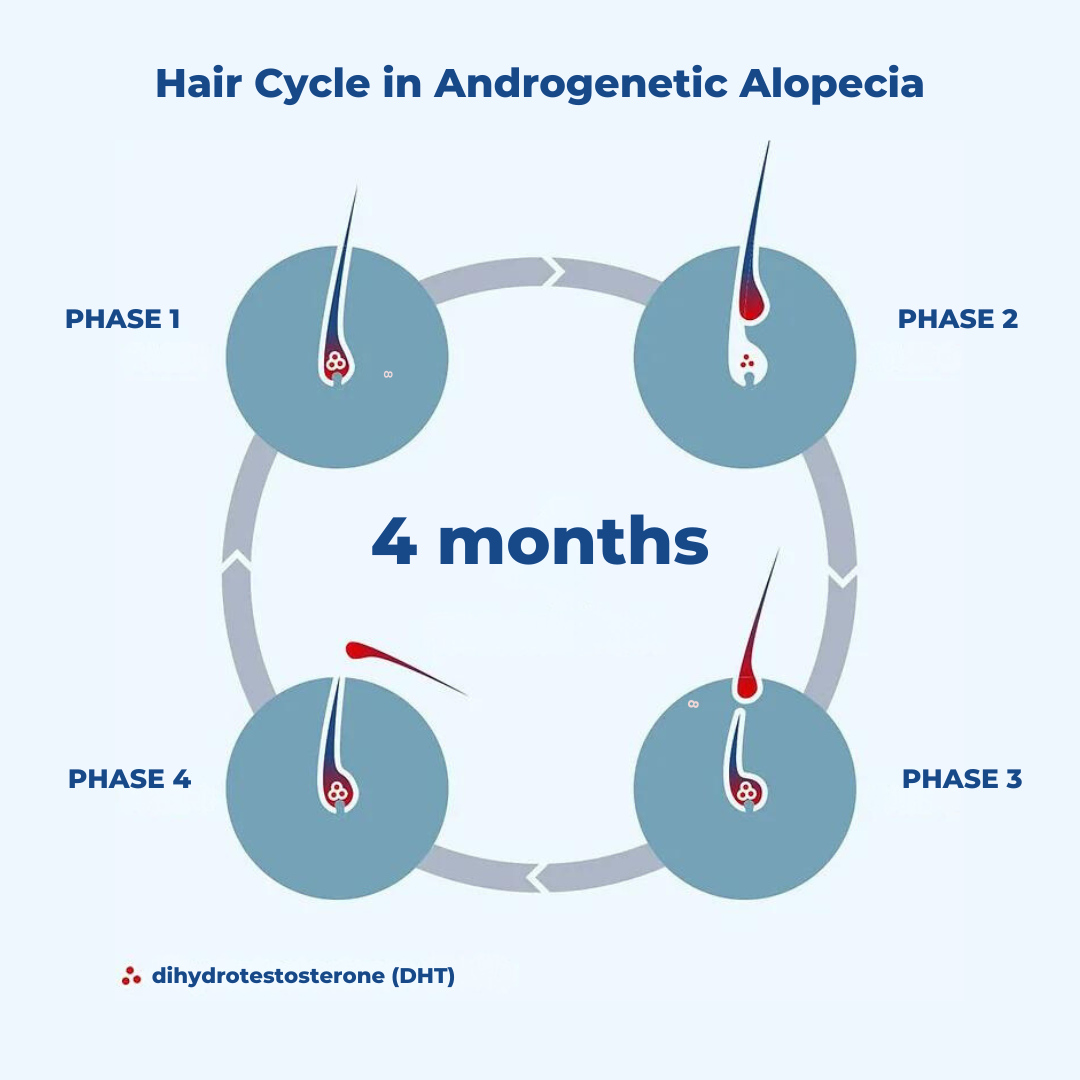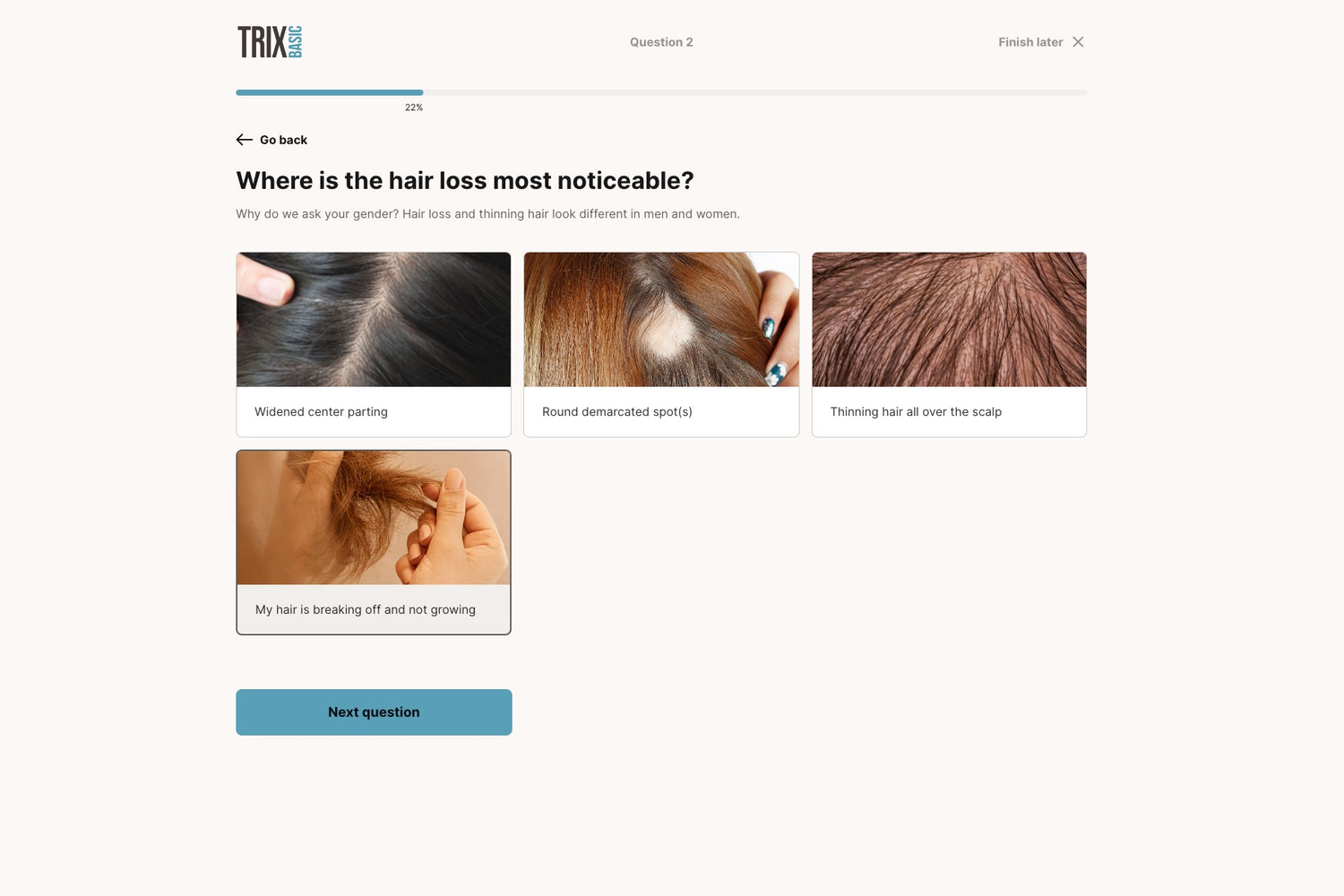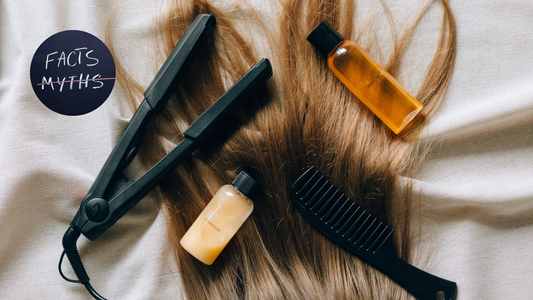
Hair Oil: Myths and Facts – Is Rosemary Oil a Real Hair Loss Solution?
Share
Hair loss affects millions worldwide, with causes ranging from genetics and hormones to stress and nutritional deficiencies. Recently, rosemary oil has gained popularity on social media as a natural remedy for hair loss. But how effective is it? Does it really stimulate hair growth, or is it just another internet trend?
In this blog, we analyze the scientific evidence behind hair oils and compare them with more effective solutions.
Can Rosemary Oil Effectively Treat Hair Loss?
Rosemary oil is often promoted as a natural alternative to minoxidil, a well-known hair growth treatment. It is mostly recommended for:
- Androgenetic Alopecia (Genetic Hair Loss): Caused by the hormone dihydrotestosterone (DHT), which shrinks hair follicles over time.
- Telogen Effluvium (Temporary Hair Loss): Hair shedding due to stress, illness, or nutritional deficiencies.
Because rosemary oil has anti-inflammatory and circulation-boosting properties, some claim it can stimulate hair follicles.
However, its effectiveness for autoimmune-related hair loss (like alopecia areata) is unclear, as these conditions require specific medical treatments.

Is There Scientific Evidence for Rosemary Oil and Hair Growth?
Yes, but with limitations. A 2015 PubMed study compared rosemary oil with 2% minoxidil in patients with androgenetic alopecia. After six months, both groups experienced similar hair regrowth, but the rosemary oil group had fewer side effects like scalp irritation.
However:
- Most studies were done on animals or in lab settings, not large-scale human trials.
- Six months is too short to measure long-term effectiveness for genetic hair loss.
- If results appear within six months, the hair loss was likely temporary (telogen effluvium), which often resolves naturally.
While rosemary oil shows promise, it is not as clinically proven as treatments like minoxidil or dutasteride or finasteride.
How Does Rosemary Oil Work on the Scalp?
Rosemary oil may support hair health in several ways:
- Improves Blood Circulation: More nutrients reach the hair follicles.
- Reduces Inflammation: Helps calm scalp irritation, which can contribute to hair loss.
- Potential DHT Blocker: Some research suggests it may have a mild DHT-reducing effect, similar to finasteride—but this requires more studies.
Realistic Expectations: What Can Rosemary Oil Do?
- Takes Time: At least 6 months of consistent use is needed for visible results.
- Works Best on Active Follicles: If follicles are completely inactive (dead), rosemary oil won’t regrow hair.
- May Support Scalp Health: Helps with dryness and irritation, but doesn’t replace medical treatments for severe hair loss.
For genetic hair loss (androgenetic alopecia), rosemary oil may offer a mild effect, but stronger treatments are needed to truly stop hair thinning.

External Care vs. Internal Factors: What Influences Hair Growth the Most?
While external treatments like oils support scalp health, the biggest influences on hair growth are internal:
- Nutritional Deficiencies: Low iron, vitamin D, and biotin levels worsen hair loss.
- Hormonal Imbalances: DHT is the main cause of androgenetic alopecia.
- Stress and Lifestyle: Chronic stress triggers telogen effluvium, leading to excessive shedding. A holistic approach—including diet, stress management, and medical treatments—is much more effective than relying on oils alone.
Are There Better Alternatives to Rosemary Oil?
Yes! More effective treatments include:
- Minoxidil: FDA-approved and stimulates follicles directly.
- Finasteride & Dutasteride: Block DHT, preventing hair follicle shrinkage.
- Hormonal Therapies for Women: Certain birth control pills and spironolactone help women with hormonal hair loss.
- Hair Growth Supplements: Iron, vitamin D, and collagen-based formulas support hair health.
- For severe cases, medical treatments or hair transplants may be necessary.
Can Using Too Much Hair Oil Cause Hair Loss?
Yes! While oils can nourish the scalp, excessive use can:
- Clog Hair Follicles: Leads to scalp inflammation.
- Make Hair Greasy: Too much oil causes buildup, making hair look limp.
- Cause Scalp Irritation: Undiluted essential oils are too strong.
Are Supplements Like TRIX Basic Alpha and TRIX Basic Beta More Effective?
Yes! TRIX Basic Alpha and TRIX Basic Beta are scientifically formulated hair growth supplements that provide better and faster results than rosemary oil.
When addressing hair loss, especially conditions like androgenetic alopecia and telogen effluvium, targeted nutritional support can be more effective than topical treatments like rosemary oil. TRIX Basic Alpha and TRIX Basic Beta are scientifically formulated supplements designed to combat specific types of hair loss by nourishing the body from within.
Unlike topical treatments, these supplements work internally to address the root causes of hair loss, providing the body with essential nutrients that support hair follicle health and function. By targeting specific deficiencies and hormonal imbalances, TRIX Basic Alpha and TRIX Basic Beta offer a comprehensive approach to hair restoration.
For optimal results, it's recommended to use these supplements consistently over a period of at least 6 to 12 months, as hair growth cycles require time to respond to nutritional interventions.
In summary, while natural oils like rosemary can offer surface-level benefits, targeted nutritional supplements such as TRIX Basic Alpha and TRIX Basic Beta provide a more effective solution by addressing the internal factors contributing to hair loss.
Why Are Supplements More Effective Than Hair Oils?
- Hair oils only work externally, while supplements nourish hair from within.
- Deficiencies in vitamins & minerals are a major cause of hair loss—TRIX Basic formulas directly address these deficiencies.
- DHT is the biggest trigger for genetic hair loss —TRIX Basic Alpha blocks DHT, something rosemary oil cannot do effectively. If you want stronger, healthier hair, a high-quality supplement like TRIX Basic Alpha or Beta will provide much better long-term results than hair oil alone.
Final Verdict: Is Rosemary Oil Worth It?
- Rosemary oil can help in the early stages of genetic hair loss or temporary shedding (telogen effluvium), but it is not a long-term solution.
- Supplements like TRIX Basic Alpha and Beta provide a more effective and scientifically backed approach by nourishing hair at the root.
- For serious hair loss, consult a specialist. At Intermedica Clinic, they offer expert diagnosis and proven treatments, ensuring you choose the best option for your hair.
